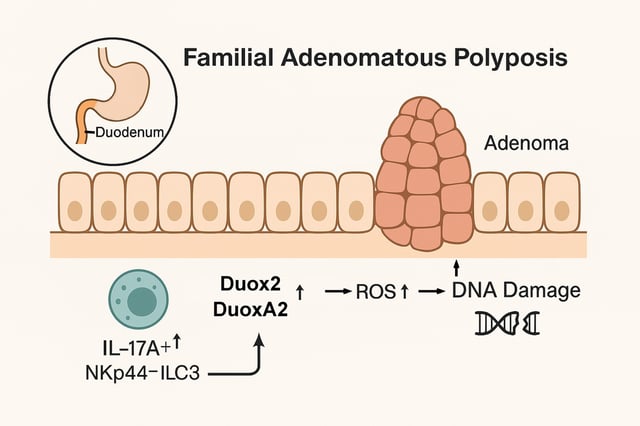Overview
- A German research consortium has discovered that IL-17A-producing innate lymphoid cells (ILC3) accumulate in the duodenum of familial adenomatous polyposis (FAP) patients, creating a pro-carcinogenic microenvironment.
- ILC3 cells secrete IL-17A, a cytokine that induces epithelial cells to produce reactive oxygen species (ROS), which cause DNA damage and promote tumor initiation.
- The study highlights the clustering of NKp44-negative ILC3 cells around dysplastic lesions and early cancerous tissue in FAP patients, suggesting a direct role in carcinogenesis.
- Researchers propose targeting IL-17A or modulating ILC3 activity in the duodenum as a novel preventive approach to reduce cancer risk in FAP patients.
- Published in *Nature Communications*, the findings mark a shift toward exploring innate immune mechanisms in hereditary cancer syndromes and open avenues for precision immunotherapy.
